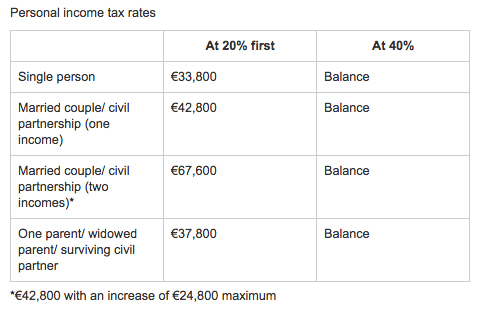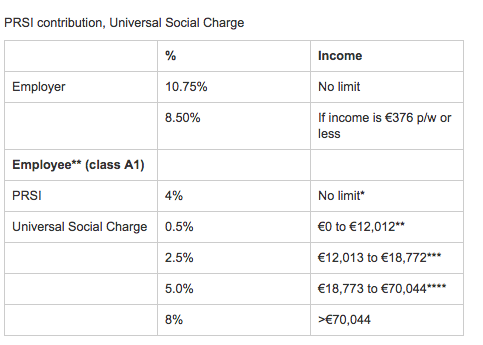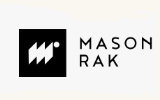Tax Professional's Guide to relocating to Dublin
Background
Dublin is the capital of Ireland and the city has an urban area population of 1.2 million. The population of the Dublin Region is 1.4 million people and the population of the Greater Dublin area is almost 2 million.
A number of Dublin's traditional industries have gradually declined, although Guinness has continued to be brewed at the St. James's Gate Brewery since 1759. Tax advantages introduced in the 90s attracted a number of global pharmaceutical, information and communications technology companies to the city and Greater Dublin Area.
Companies like Microsoft, Google, Amazon, eBay, PayPal, Yahoo!, Facebook, Twitter, Accenture and Pfizer now have European headquarters and/or operational bases in the city, with several located in enterprise clusters like the Digital Hub and Silicon Docks. This presence of these companies has driven economic expansion in the city and led to Dublin sometimes being referred to as the Tech Capital of Europe.
Employers
Dublin has a large population of tax professionals working at Big 4, medium sized and independent firms. There are also a substantial number of in-house tax professionals in the city, by virtue of the US, European and Irish corporates that have a global or EMEA headquarters in Dublin. Facebook, Oracle, Allied Irish Bank, Twitter, Linkedin, Google and Apple are just a handful of the group tax teams that are in place.
To view current tax opportunities in Ireland, please click here.
To view tax opportunities at KPMG Ireland, please click here, but you might also want to watch the video below.
Taxation

Source: https://home.kpmg.com/xx/en/home/insights/2011/12/ireland-income-tax.html

The Universal Social Charge (USC), which came into effect on 1 January 2011, is a levy payable on gross income, including notional pay, before any relief for any capital allowances, losses or pension contributions.
All individuals are liable to pay the universal social charge if their gross income exceeds the threshold of EUR13,000. In the case of individuals aged 70 or over, and individuals who hold full medical cards, the 3 percent (2016) or 2.5% (2017) rate applies to all income over EUR13,000. This reduced rate however is only available for those whose gross income is less than EUR60,000 per annum.
The USC is essentially another form of income tax and is usually regarded as an admissible tax for the purposes of Ireland’s Double Taxation Agreements.
Transport
Dublin is served by a network of nearly 200 bus routes which cover the city and suburbs. The majority of these are controlled by Dublin Bus. Fares are generally calculated on a stage system based on distance travelled.
The Dublin Suburban Rail network consists of five railway lines serving the Greater Dublin Area and commuter towns such as Drogheda and Dundalk in County Louth.
Dublin City Council began installing cycle lanes in the 1990s and the city has over 200 kilometres of road tracks for cyclists.
Dublinbikes is a self-service bicycle rental scheme that consists of 600 unisex bicycles stationed at 50 terminals throughout the city. Users must make a subscription or purchase a three-day ticket.
Health
All persons resident in Ireland are entitled to receive health care through the public health care system. A person may be required to pay a subsidised fee for certain health care received; this depends on income, age, illness or disability. All maternity services and child care up to the age of six months are provided free of charge.
People who are not entitled to a Medical Card (about 68% of the population) must pay fees for certain health care services eg there is a €100 A&E charge for those who attend an accident and emergency department without a referral letter from a family doctor.
If a person cannot afford to pay hospital charges, the HSE will provide the services free of charge.
Sport
Croke Park is the largest sport stadium in Ireland. It is the headquarters of the Gaelic Athletic Association and has a capacity of 82,300. It is the third-largest stadium in Europe after Nou Camp in Barcelona and Wembley Stadium in London. It hosts the premier Gaelic football and hurling games and international rules football.
The other key sports are Rugby, Football and Cricket.
Accommodation
Dublin is a compact city and as a result the cost to rent or buy is relatively high in the city. A useful website that includes both private and agency listings is http://www.rent.ie/houses-to-let/renting_dublin/
The specific location (and distance from the city) dictates price, but for EUR 850 per month you can obtain a 1 bed studio apartment or for EUR 1,200 a 1 bed apartment.
Schooling
Ireland has a very good public education system. More information can be found here: https://dublin.ie/learning/irish-education-system/
There is also a league table for the different areas of Dublin that is worth researching: http://www.schooldays.ie/articles/about-school-league-tables
If you are looking for an international school then a few notable ones to consider are:
The International School of Dublin www.internationalschooldublin.ie
Lycée Français d'Irlande (French) www.lfi.ie
St Andrew’s College www.sac.ie















